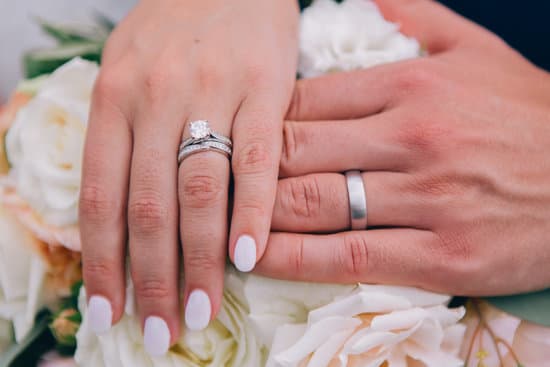David Austin wedding roses are a popular choice for couples looking to add a touch of romance and elegance to their special day. These beautiful blooms, known for their exquisite beauty and fragrance, have become a staple in many wedding ceremonies and floral arrangements. But can you grow David Austin wedding roses in your own garden?
In this article, we will explore the history, characteristics, growing conditions, care and maintenance, as well as the benefits and potential challenges of cultivating these stunning roses. Whether you’re a seasoned gardener or just starting out, this guide will provide you with all the information you need to successfully grow David Austin wedding roses in your own backyard.
The history of David Austin roses dates back to the mid-20th century when English rose breeder David Austin set out to create a new breed of rose that combined the charm and fragrance of old-fashioned roses with the repeat-flowering ability and wide color range of modern roses. The result was a collection of stunning roses that captured the hearts of gardeners and flower enthusiasts around the world.
Today, David Austin roses are renowned for their classic beauty and captivating scent, making them a popular choice for weddings and special occasions.
Characterized by their full-petaled blooms, rich colors, and intoxicating fragrance, David Austin wedding roses offer an unparalleled level of beauty and elegance. These exquisite blooms are perfect for creating romantic bridal bouquets, table centerpieces, and floral decorations.
Their timeless appeal makes them a popular choice for brides looking to add a touch of luxury to their wedding day. Whether you’re planning a traditional or modern celebration, these roses can effortlessly elevate the ambiance with their sheer beauty and delicate fragrance.
The History of David Austin Roses
Origins of David Austin Roses
David Austin Wedding Roses are named after English rose breeder David C.H. Austin, who began his journey to create a new variety of roses in the 1940s. Frustrated with the lack of fragrance in modern hybrid tea roses, he set out to cross-breed old-fashioned roses with modern ones, aiming to create plants that combined the best traits of both types.
Development and Recognition
After years of trial and error, David Austin successfully bred his first rose, ‘Constance Spry’, in 1961. This marked the beginning of his successful career as a rose breeder. Over the following decades, he continued to develop new varieties, concentrating on creating roses with beautiful flowers, strong and pleasant fragrances, and disease resistance. His dedication to breeding exceptional roses earned him numerous awards and recognition in the horticulture world.
Legacy and Impact
The legacy of David Austin Roses lives on today through the wide range of varieties available for gardeners, including the popular wedding roses that are beloved for their beauty and fragrance. The impact of David Austin’s work can be seen in gardens around the world, where his roses are cherished for their romantic charm and classic beauty. As a result, these roses have become a staple in weddings and special events due to their timeless appeal.
Characteristics of David Austin Wedding Roses
When it comes to wedding roses, David Austin roses are a popular choice for many brides and florists. Known for their romantic, old-fashioned charm and exquisite scent, these roses can add a touch of elegance to any wedding bouquet or floral arrangement.
Appearance
David Austin wedding roses are known for their full, cup-shaped blooms with many petals, giving them a luxurious and lavish appearance. They come in a range of colors, from soft pastels to rich, deep hues, making them versatile for any wedding theme or color scheme. The blooms often have a slight nodding habit on the stem, adding to their romantic and graceful appeal.
Fragrance
One of the most distinctive characteristics of David Austin wedding roses is their exquisite fragrance. Their scent is often described as a combination of old rose, musk and myrrh, creating an intoxicating and romantic aroma that can fill a room with its perfume.
Durability
Despite their delicate appearance and wonderful fragrance, David Austin wedding roses are surprisingly hardy and long-lasting flowers. They have a good vase life when properly cared for and can withstand being arranged in bouquets or centerpieces without losing their beauty or fragrance too quickly.
With their stunning appearance, enchanting fragrance, and durability as cut flowers, it’s no wonder why David Austin wedding roses are highly sought after by brides and florists alike.
Growing Conditions for David Austin Wedding Roses
David Austin wedding roses are renowned for their beauty, fragrance, and romantic allure, making them a perfect choice for any wedding bouquet or floral arrangement. These exquisite roses are reminiscent of classic English roses with their full, cupped blooms and delightful scent. If you’re considering growing David Austin wedding roses for your own special day or simply to add some elegance to your garden, it’s important to understand the specific growing conditions that will help these roses thrive.
One essential factor in successfully growing David Austin wedding roses is providing the right amount of sunlight. These roses typically require at least 6-8 hours of direct sunlight each day to develop their stunning blooms and maintain a healthy overall growth. Additionally, it’s important to choose a planting location with well-draining soil to prevent waterlogging, which can lead to root rot and other issues.
In terms of climate, David Austin wedding roses can adapt well to a range of conditions but generally prefer temperate climates with mild summers and winters. While they can tolerate some colder temperatures, it’s essential to protect them from harsh frost by covering them or bringing them indoors during particularly cold spells.
Lastly, regular pruning and fertilizing are crucial aspects of caring for these beautiful roses as they promote healthy growth and abundant flowering. By providing the right growing conditions and care, you can grow David Austin wedding roses that will bring joy and beauty to any occasion.
| Growing Condition | Requirements |
|---|---|
| Sunlight | At least 6-8 hours of direct sunlight daily |
| Soil | Well-draining soil to prevent waterlogging |
| Climate | Temperate climates with mild summers and winters; protection from harsh frost |
| Care | Regular pruning and fertilizing for healthy growth |
Care and Maintenance of David Austin Wedding Roses
David Austin wedding roses are known for their beauty, fragrance, and romantic symbolism, making them a popular choice for weddings and special occasions. Once you have successfully grown your David Austin wedding roses, it is important to provide the proper care and maintenance to ensure they thrive and continue to produce gorgeous blooms.
After planting your David Austin wedding roses, it is crucial to water them regularly, especially during dry periods. These roses prefer well-drained soil, so be sure not to overwater them as this can lead to root rot. Applying a layer of organic mulch around the base of the plants can help retain moisture in the soil and suppress weed growth.
In terms of pruning, David Austin wedding roses should be pruned annually to promote new growth and maintain their shape. This can be done in late winter or early spring before new growth begins. Remove any dead or diseased wood, as well as crossing branches that may hinder air circulation within the plant. Additionally, you can deadhead spent flowers throughout the growing season to encourage continuous blooming.
One potential challenge in maintaining David Austin wedding roses is controlling pests and diseases such as aphids, black spot, and powdery mildew. Regularly inspecting your plants for any signs of infestation or disease can help catch issues early on.
Using environmentally friendly pest control methods and providing proper air circulation can help prevent these problems from occurring. With the correct care and maintenance, you can grow david austin wedding roses that will bring joy and beauty to your garden for years to come.
| Aspect | Description |
|---|---|
| Watering | Regular watering during dry periods; avoid overwatering |
| Pruning | Annual pruning in late winter or early spring; remove dead or diseased wood |
| Pest Control | Regular inspection for pests and diseases; use environmentally friendly methods for prevention |
Benefits of Growing David Austin Wedding Roses
As a fan of David Austin Wedding Roses, you can enjoy several benefits by growing these beautiful and fragrant flowers in your garden. Here are some of the advantages:
- Exquisite Beauty: One of the main benefits of growing David Austin Wedding Roses is their exquisite beauty. These roses are known for their full, cup-shaped blooms, reminiscent of old-fashioned English roses. Their romantic and nostalgic appearance adds an elegant touch to any garden or bouquet.
- Fragrance: Unlike many modern hybrid roses that often lack fragrance, David Austin Wedding Roses are celebrated for their delightful scent. The sweet and captivating fragrance of these roses can fill your garden with an enchanting aroma that is sure to uplift your spirits.
- Versatility: Whether you want to adorn your wedding venue with stunning blooms or simply enhance your garden with their beauty, David Austin Wedding Roses are incredibly versatile. They can be used for flower arrangements, bouquets, corsages, or as standalone bushes in a flower bed.
In addition to their aesthetic appeal, growing David Austin Wedding Roses can also be a rewarding experience in terms of care and maintenance. These roses thrive under the right conditions and can bring joy to any enthusiast through their charm and elegance.
- Long Bloom Season: David Austin Wedding Roses are known for having a long bloom season compared to other types of roses. This means you can enjoy their gorgeous blooms for an extended period throughout the year.
- Disease Resistance: Another benefit of growing these roses is their natural resistance to common rose diseases such as black spot and powdery mildew. This makes them relatively easier to care for compared to other varieties.
- Award-Winning Varieties: Many David Austin Wedding Roses have won awards for their exceptional beauty and performance. By growing these award-winning varieties in your garden, you can be confident that you’re cultivating top-quality blooms.
These benefits make growing David Austin Wedding Roses an appealing option for both experienced gardeners and beginners alike who wish to add a touch of romance and elegance to their outdoor spaces.
Potential Challenges and Solutions in Growing David Austin Wedding Roses
David Austin wedding roses are known for their exquisite beauty and delightful fragrance, making them a popular choice for weddings and special occasions. However, like any other type of rose, growing David Austin wedding roses comes with its own set of challenges. It’s important to be aware of these potential obstacles so that you can take the necessary steps to overcome them and ensure that your roses thrive.
Here are some common challenges that you may encounter when growing David Austin wedding roses, along with some solutions to help you address them:
Potential Challenges:
1. Disease and Pest Infestation: Roses are susceptible to various diseases such as powdery mildew, black spot, and aphid infestations.
2. Soil Quality: Poor soil quality can hinder the growth and development of your roses.
3. Climate Considerations: Extreme temperatures or inconsistent weather patterns can impact the health of your roses.
Solutions:
– To prevent disease and pest infestation, regularly inspect your roses for any signs of trouble and take prompt action. Use organic pesticides or natural remedies to combat pests without harming beneficial insects.
– Improve soil quality by amending it with organic matter such as compost or well-rotted manure to provide essential nutrients for healthy rose growth.
– Consider planting your David Austin wedding roses in pots or containers that can be moved indoors during extreme weather conditions.
By being proactive in addressing these potential challenges, you can create an optimal environment for growing beautiful and fragrant David Austin wedding roses in your garden or landscape.
Can You Grow David Austin Wedding Roses
David Austin Wedding Roses are a popular choice for brides and gardeners alike, known for their exquisite beauty and romantic appeal. These roses are hybrid varieties developed by renowned English rose breeder David Austin, with the aim of capturing the charm and fragrance of old-fashioned roses while incorporating modern characteristics such as repeat flowering and disease resistance.
Growing David Austin Wedding Roses can be a rewarding experience, as these roses are prized for their classic beauty, delicate scent, and soft pastel hues. Whether you are a novice or experienced gardener, with the right knowledge and care, you can successfully cultivate these stunning blooms in your own garden or even use them for weddings and special occasions.
To grow David Austin Wedding Roses successfully, it is essential to provide them with the right growing conditions. These roses thrive in sunny locations with well-draining soil enriched with organic matter. Adequate air circulation is also crucial to prevent diseases such as powdery mildew and black spot. In terms of care and maintenance, regular watering, feeding with rose fertilizer, and proper pruning to encourage continuous blooming are important factors in ensuring healthy growth.
When it comes to potential challenges in growing David Austin Wedding Roses, pests such as aphids and thrips may pose a threat to the health of the plants. However, these issues can be managed through natural methods like hand-picking or using organic pest control products. By being aware of these challenges and implementing appropriate solutions, anyone can enjoy the beauty of these timeless roses in their garden or special events.
Conclusion and Final Thoughts on Growing David Austin Wedding Roses
In conclusion, growing David Austin wedding roses can be a rewarding and fulfilling experience for any rose enthusiast. With their stunning beauty, rich history, and delightful fragrance, these roses are a perfect choice for weddings, special occasions, or simply to add elegance to your garden.
While the process of growing David Austin wedding roses may come with its challenges, such as finding the right growing conditions and addressing potential pest issues, the benefits far outweigh any obstacles. The key is to provide the proper care and maintenance they require, from well-draining soil to regular pruning and watering. Additionally, understanding their characteristics and history can enhance one’s appreciation for these exquisite blooms.
Ultimately, with the right knowledge and dedication, anyone can grow David Austin wedding roses successfully. Whether you’re a seasoned gardener or a novice enthusiast, these roses can add charm and beauty to any garden or landscape. So why not give it a try? With the tips and advice provided in this article, you’ll be on your way to nurturing these stunning flowers in no time.
Frequently Asked Questions
Who Grows David Austin Wedding Roses?
David Austin Wedding Roses are grown by David Austin Roses, a company founded by English rose breeder David C.H. Austin. The company is known for its beautiful and fragrant roses, including those specifically created for weddings.
Are You Allowed to Propagate David Austin Roses?
Propagating David Austin Roses is generally not allowed due to copyright laws protecting the unique genetic makeup of these specially bred roses. As such, it’s best to purchase new plants from a licensed supplier rather than attempting to propagate them on your own.
How Do You Grow David Austin Roses?
To grow David Austin Roses successfully, it’s important to choose a suitable location with well-drained soil and plenty of sunlight. Regular watering, feeding with rose fertilizer, and pruning can help these roses thrive. Additionally, providing support for the climbing varieties and protecting them from pests and diseases are essential for their growth and development.

I have been involved in marriages for over 20 years helping couples and singles understand more about them.





